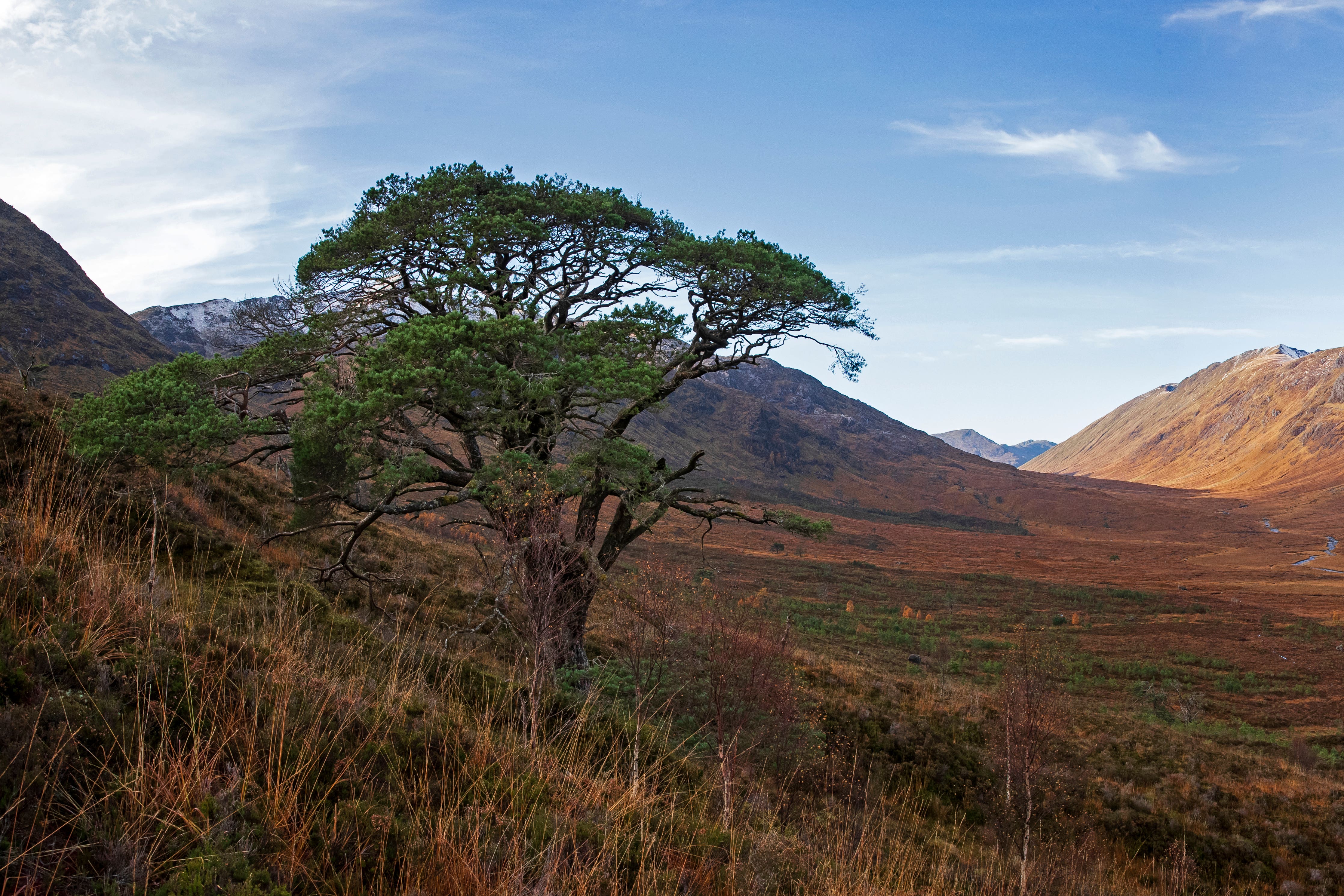Centuries-old Scots pine saved as part of Highlands rewilding project
Trees for Life stepped in to save dozens of pines throughout Glen Loyne in the Highlands.

A remote ancient woodland containing Scotland’s oldest wild Scots pine has been saved by a rewilding charity from being lost forever.
Trees for Life stepped in to save dozens of pines throughout Glen Loyne in the northwest Highlands after they were identified to be at risk from overgrazing by excessive numbers of deer.
The charity has erected deer-proof fencing around the perimeter of the woodland with permission from the landowner to protect the trees from harm and allow young seedlings to grow without being eaten.
The oldest pine in the grouping of some 57 pines, all of which are believed to be several centuries old, has been dated as being 565 years old by St Andrews Tree-Ring Laboratory.
Trees for Life surveyed the site as part of its four-year Caledonian Pinewood Recovery Project, one of the most comprehensive surveys of the health of Scotland’s pinewoods.
Glen Loyne’s wild pines and other Caledonian pinewoods are globally unique, and a special part of Scotland’s character and culture
The team found that some of the oldest pines were outside an area of fencing which had been erected in the 1990s to protect them from grazing pressure, and that deer had also breached the perimeter.
The charity has since put up 1.5 kilometres of new fencing and renewed existing sections with heavy-duty materials brought to the remote glen by helicopter.
It is hoped the pinewood will now be able to regenerate naturally for the first time in decades.
James Rainey, senior ecologist at Trees for Life, said: “Glen Loyne’s wild pines and other Caledonian pinewoods are globally unique, and a special part of Scotland’s character and culture.
“Saving and restoring them offers a major opportunity for tackling the nature and climate crises.
“Fencing is only a temporary fix, but for now it’s a vital way of giving these precious pinewoods a fighting chance of recovery until effective landscape-scale deer management can be properly established.”
Historically part of the royal hunting grounds of Cluanie, the Glen Loyne woodlands would once have been home to capercaillie, wildcat and lynx.
Ordnance Survey maps from 1874 show a more extensive woodland in the glen, but by the 1990s there were only 85 ancient pines left – a number that has since been reduced further to just 57.
The nature recovery project has been funded by the family of Harry Steven, who with Jock Carlisle wrote The Native Pinewoods of Scotland, published in 1959.
The book recognised the special status of the pinewoods and documented 35 wild pine populations that had survived centuries of deforestation.
In the 1990s, the work of Steven and Carlisle led to the then Forestry Commission Scotland compiling Scotland’s official Caledonian Pinewood Inventory, which today recognises 84 sites.
Glen Loyne, on East Glen Quoich estate, lies within Affric Highlands – the UK’s largest rewilding landscape.
Led by Trees for Life and Rewilding Europe, the 30-year community-focused initiative will restore woodland, peatland and riverside habitats over half a million acres from Loch Ness to the west coast.
Bookmark popover
Removed from bookmarks